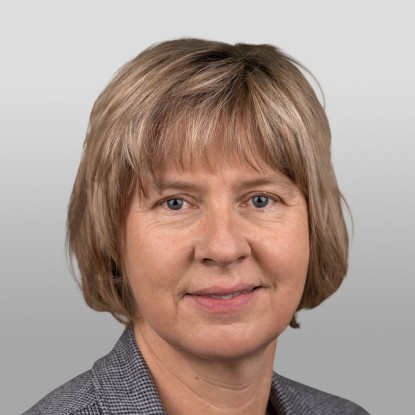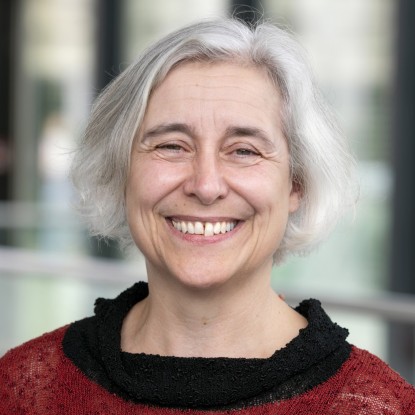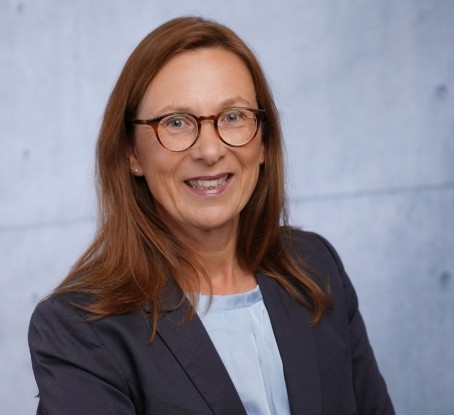Mittwoch, 14. Oktober 2020, 16:00 – 17:00 Uhr, Zoom
Referent: Haowu Wang (MPIM Bonn)
Abstract:In this talk we construct some new free algebras of modular forms. For 25 orthogonal groups of signature (2,n) related to irreducible root systems, we prove that the graded algebras of modular forms on type IV symmetric domains are freely generated. The proof is based on the theory of Weyl invariant Jacobi forms. As an application, we show the modularity of formal Fourier-Jacobi expansions for these groups. This is joint work with Brandon Williams.
Mittwoch, 21. Oktober 2020, 16:00 – 17:00 Uhr, Zoom
Referent: Yunqing Tang (CNRS & Université Paris-Sud)
Abstract:For a K3 surface X over a number field with potentially good reduction everywhere, we prove that there are infinitely many primes modulo which the reduction of X has larger geometric Picard rank than that of the generic fiber X. A similar statement still holds true for ordinary K3 surfaces with potentially good reduction everywhere over global function fields. In this talk, I will present the proofs via the (arithmetic) intersection theory on good integral models (and its special fibers) of GSpin Shimura varieties along with a potential application to a certain case of the Hecke orbit conjecture of Chai and Oort. This talk is based on joint work with Ananth Shankar, Arul Shankar, and Salim Tayou and with Davesh Maulik and Ananth Shankar.
Mittwoch, 28. Oktober 2020, 16:00 – 17:00 Uhr, Zoom
Referent: Alessandro Lägeler (ETH)
Abstract: As was shown by Hickerson in the 70's, the classical Dedekind sums s(d, c) can be represented as sums over the coefficients of the continued fraction expansion of the rational d / c. Hardy sums, the analogous integer-valued objects arising in the transformation of the logarithms of theta functions under a subgroup of the modular group, have been shown to satisfy many properties which mirror the properties of the classical Dedekind sums. The representation as coefficients of continued fractions has, however, been missing so far. In this talk, I will argue how one can fill this gap. As an application, I will present a new proof for the fact that the graph of the Hardy sums is dense in R x Z, which was previously proved by Meyer.
Mittwoch, 4. November 2020, 16:00 – 17:00 Uhr, Zoom
Referent: Michael Griffin (BYU)
Abstract: Als PDF verfügbar (wird in neuem Tab geöffnet).
Mittwoch, 11. November 2020, 16:00 – 17:00 Uhr, Zoom
Referentin: Christina Röhrig (Uni Köln)
Abstract: Due to a result by Vigneras from 1977, there is a quite simple way to determine whether a certain theta series admits modular transformation properties. To be more specific, she showed that solving a differential equation of second order serves as a criterion for modularity. We generalize this result for Siegel theta series of arbitrary genus n. In order to do so, we construct Siegel theta series for indefinite quadratic forms by considering functions which solve an (n x n)-system of partial differential equations. These functions do not only give examples of Siegel theta series, but build a basis of the family of Schwartz functions that generate series which transform like modular forms.
Mittwoch, 18. November 2020, 16:00 – 17:00 Uhr, Zoom
Referent: Toshiki Matsusaka (Nagoya University)
Abstract: The Rademacher symbol is a classical object related to the transformation formula of the Dedekind eta function. In 2007, Ghys showed that the Rademacher symbol is equal to the linking number of a modular knot and the trefoil knot. In this talk, we consider two analogues of Ghys' theorem. One is a hyperbolic analogue of the Rademacher symbol introduced by Duke-Imamoglu-Toth. As they showed, the hyperbolic Rademacher symbol gives the linking number of two modular knots. I will give here some explicit formulas for this symbol. The other is the Rademacher symbol on the triangle group. This symbol is defined from the transformation formula of the logarithm of a cusp form on the triangle group, and gives the linking number of a (triangle) modular knot and the (p,q)-torus knot. The latter part is a joint work (in progress) with Jun Ueki (Tokyo Denki University).
Mittwoch, 25. November 2020, 16:00 – 17:00 Uhr, Zoom
Referent: Kathrin Maurischat (RWTH Aachen)
Abstract: Ramanujan bigraphs are known to arise as quotients of Bruhat-Tits buildings for non-split unitary groups U_3. However, these are only implicitly defined. We show that one also obtains Ramanujan bigraphs in special split cases, and we give explicit constructions. The proof is obtained by inspecting the automorphic spectrum for temperedness, and for the construction we introduce the notion of bi-Cayley graphs. This is joint work with C. Ballantine, S. Evra, B. Feigon, O. Parzanchevski.
Mittwoch, 2. Dezember 2020, 16:00 – 17:00 Uhr, Zoom
Referent: Gabriele Bogo (TU Darmstadt)
Abstract: Modular forms appear in Poincare's work as solutions of certain differential equations related to the uniformization of Riemann surfaces. In the talk I will consider certain perturbations of these differential equations and prove that their solutions are given by combinations of quasimodular forms and Eichler integrals. The relation between these ODEs and the deformation theory of Riemann surfaces will be discussed. By considering the monodromy representation of the perturbed ODEs one can describe their solutions as components of vector-valued modular forms. This leads to the general study of functions arising as components of vector-valued modular forms attached to extensions of symmetric tensor representations (extended modular forms). If time permits I will discuss some examples, including certain functions arising in the study of scattering amplitudes.
Mittwoch, 9. Dezember 2020, 16:00 – 17:00 Uhr, Zoom
Referent: Ariel Pacetti (Universidad de Cordoba)
Abstract: In this talk we will investigate integral solutions of the equation x^2+dy^2=z^p, for positive values of d. To a solution, one can attach a Frey curve, which happens to be a Q-curve. A result of Ribet implies that such a curve is related to a weight 2 modular form in S_2(\Gamma_0(N),\epsilon). Using Hecke characters we will give a precise formula for N and ϵ and prove non-existence of solutions in some cases. If time allows, we will show how a similar idea applies to the equation x^2+dy^6=z^p.
Mittwoch, 16. Dezember 2020, 16:00 – 17:00 Uhr, Zoom
Referentin: Eugenia Rosu (University of Regensburg)
Abstract: We consider certain families of sextic twists of the elliptic curve y^2=x^3+1 that are not defined over \mathbb{Q}, but over \mathbb{Q}(\sqrt{-3}). We compute a formula that relates the value of the L-function L(E_D, 1) to the square of a trace of a modular function at a CM point. Assuming the Birch and Swinnerton-Dyer conjecture, when the value above is non-zero, we should recover the order of the Tate-Shafarevich group, and under certain conditions, we show that the value is indeed a square.
Mittwoch, 13. Januar 2021, 16:00 – 17:00 Uhr, Zoom
Referent: Johann Franke (University of Cologne)
Abstract: There are two elementary methods for constructing elliptic modular forms that dominate in literature. One of them uses automorphic Poincare series and the other one theta functions. We start a third elementary approach to modular forms using rational functions that have certain properties regarding pole distribution and growth. One can prove modularity with contour integration methods and Weil's converse theorem, without using the classical formalism of Eisenstein series and L-functions. This approach to modular forms has several applications, for example to Eisenstein series, L-functions and Eichler integrals. In this talk we focus on some applications to cotangent sums.
Mittwoch, 20. Januar 2021, 16:00 – 17:00 Uhr, Zoom
Referentin: Jolanta Marzec (University of Kazimierz Wielki)
Abstract: The special values of motivic L-functions have obtained a lot of attention due to their arithmetic consequences. In particular, they are expected to be algebraic up to certain factors. The Jacobi forms may also be related to a geometric object (mixed motive), but their L-functions are much less understood. During the talk we associate to Jacobi forms (of higher degree, index and level) a standard L-function and mention some of its analytic properties. We will focus on the ingredients that come into a proof of algebraicity (up to certain factors) of its special values. The talk is based on joint work with Thanasis Bouganis: https://link.springer.com/article/10.1007/s00229-020-01243-w .
Mittwoch, 27. Januar 2021, 16:00 – 17:00 Uhr, Zoom
Referent: Tom Oliver (University of Nottingham)
Abstract: The zeros of automorphic L-functions are central to certain famous conjectures in arithmetic. In this talk we will discuss the characterization of Dirichlet coefficients, with a particular emphasis on applications to vanishing. The primary focus will be GL(2), but we will also mention higher rank groups – namely, GL(m) and GL(n) such that m-n=2.
Dienstag, 13. April 2021, 15:00 – 16:00, Zoom
Referent: Tiago Fonseca (University of Oxford)
Abstract: The main goal of this talk is to explain how to characterise Fourier coefficients of Poincaré series, of positive and negative index, as certain algebro-geometric invariants attached to the cohomology of modular curves, namely their `single-valued periods'. This is achieved by a suitable geometric reformulation of classic results in the theory of harmonic Maass forms. Some applications to algebraicity questions will also be discussed.
Dienstag, 20. April 2021, 15:00 – 16:00, Zoom
Referent: Andreas Mono (University of Cologne)
Abstract: We present a twisting of Zagier's $f_{k,D}$ function by a sign function and a genus character. Assuming even and positive integral weight, we inspect its obstruction to modularity, and compute its Fourier expansion. This involves twisted hyperbolic Eisenstein series, locally harmonic Maass forms, and modular cycle integrals, which were studied by Duke, Imamoglu, Toth.
Dienstag, 27. April 2021, 15:00 – 16:00, Zoom
Referent: Amanda Folsom (Amherst)
Abstract: Quantum modular forms, defined in the rationals, transform like modular forms do on the upper half plane, up to suitably analytic error functions. After introducing the subject, in this talk, we extend work of Bettin and Conrey and define twisted Eisenstein series, study their period functions, and establish quantum modularity of certain cotangent-zeta sums. The Dedekind sum, discussed by Zagier in his original paper on quantum modular forms, is a motivating example.
Dienstag, 4. Mai 2021, 15:00 – 16:00, Zoom
Referentin: Moni Kumari (Bar-Ilan University)
Abstract: Modular forms play a prominent role in the classical as well as in modern number theory. In the theory of modular forms, there is an important class of functions called Poincaré series. These functions are very mysterious and there are many unsolved problems about them. In particular, the vanishing or non-vanishing of such functions is still unknown in full generality. In a special case, the latter problem is equivalent to the famous Lehmer's conjecture which is one of the classical open problems in the theory. In this talk, I will speak about when these functions are non-zero for Hilbert modular forms, a natural generalization of modular forms for totally real number fields.
Dienstag, 11. Mai 2021, 15:00 – 16:00, Zoom
Referent: Michael Mertens (University of Liverpool)
Abstract: Using techniques from the theory of mock modular forms and harmonic Maass forms, especially Weierstrass mock modular forms, we establish several dimension formulas for certain holomorphic, strongly rational vertex operator algebras, complementing previous work by van Ekeren, Möller, and Scheithauer. As an application, we show that certain special values of the completed Weierstrass zeta function are rational. This talk is based on joint work with Lea Beneish.
Dienstag, 18. Mai 2021, 15:00 – 16:00, Zoom
Referent: Sebastián Herrero (Pontifical Catholic University of Valparaiso)
Abstract: In 2015 P. Habegger proved that there are at most finitely many singular moduli that are algebraic units. In 2018 this result was made explicit by Y. Bilu, P. Habegger and L. Kühne, by proving that there is actually no singular modulus that is an algebraic unit. Later, this result was extended by Y. Li to values of modular polynomials at pairs of singular moduli. In this talk I will report on joint work with R. Menares and J. Rivera-Letelier, where we prove that for any finite set of prime numbers S, there are at most finitely many singular moduli that are S-units. We use Habegger's original strategy together with the new ingredient that for every prime number p, singular moduli are p-adically disperse..
Dienstag, 25. Mai 2021, 15:00 – 16:00, Zoom
Referent: James Rickards (McGill University)
Abstract: In this talk, we give a formula for the total intersection number of optimal embeddings of a pair of real quadratic orders with respect to an indefinite quaternion algebra over Q. We recall the classical Gross-Zagier formula for the factorization of the difference of singular moduli, and note that our formula resembles an indefinite version of this factorization. This lends support to the work of Darmon-Vonk, who conjecturally construct a real quadratic analogue of the difference of singular moduli.
Dienstag, 1. Juni 2021, 15:00 – 16:00, Zoom
Referent: Yuya Murakami (Tohoku University)
Abstract: Cycle integrals of the j-function are expected to play a role in the real quadratic analog of singular moduli. However, it is not clear how one can consider cycle integrals as a „continuous“ function on real quadratic numbers. In this talk, we extend the definition of cycle integrals of the j-function from real quadratic numbers to badly approximable numbers to seek an appropriate continuity. We also give some explicit representations for extended-cycle integrals in some cases which can be considered as a partial result of continuity of cycle integrals.
Dienstag, 8. Juni 2021, 15:00 – 16:00, Zoom
Referentin: Claire Burrin (ETH)
Abstract: The Rademacher symbol is algebraically expressed as a conjugacy class invariant quasimorphism PSL(2,Z) -> Z. It was first studied in connection to Dedekind's eta-function, but soon enough appeared to be connected to class numbers of real quadratic fields, the Hirzebruch signature theorem, or linking numbers of knots. I will explain (1) how, using continued fractions, Psi can be realized as the winding number for closed curves on the modular surface around the cusp; (2) how, using Eisenstein series, one can naturally construct a Rademacher symbol for any cusp of a general noncocompact Fuchsian group; (3) and discuss some new connections to arithmetic geometry.
Dienstag, 15. Juni 2021, 15:00 – 16:00, Zoom
Referentin: Chao Li (Columbia University)
Abstract: For certain automorphic representations π on unitary groups, we show that if L(s,π) vanishes to order one at the center s=1/2, then the associated π-localized Chow group of a unitary Shimura variety is nontrivial. This proves part of the Beilinson-Bloch conjecture for unitary Shimura varieties, which generalizes the BSD conjecture. Assuming Kudla's modularity conjecture, we further prove the arithmetic inner product formula for Lʹ(1/2,π), which generalizes the Gross-Zagier formula. We will motivate these conjectures and discuss some aspects of the proof. We will also mention recent extensions applicable to symmetric power L-functions of elliptic curves. This is joint work with Yifeng Liu.
Dienstag, 22. Juni 2021, 10:00 – 11:00, Zoom
Referentin: YoungJu Choie (Postech)
Abstract: A closed formula for the sum of all Hecke eigenforms on Γ0(N), multiplied by their odd period polynomials in two variables, as a single product of Jacobi theta series for any squarefree level N is known. When N = 1 this was result given by Zagier in 1991. We discuss more general result regarding on this direction.




